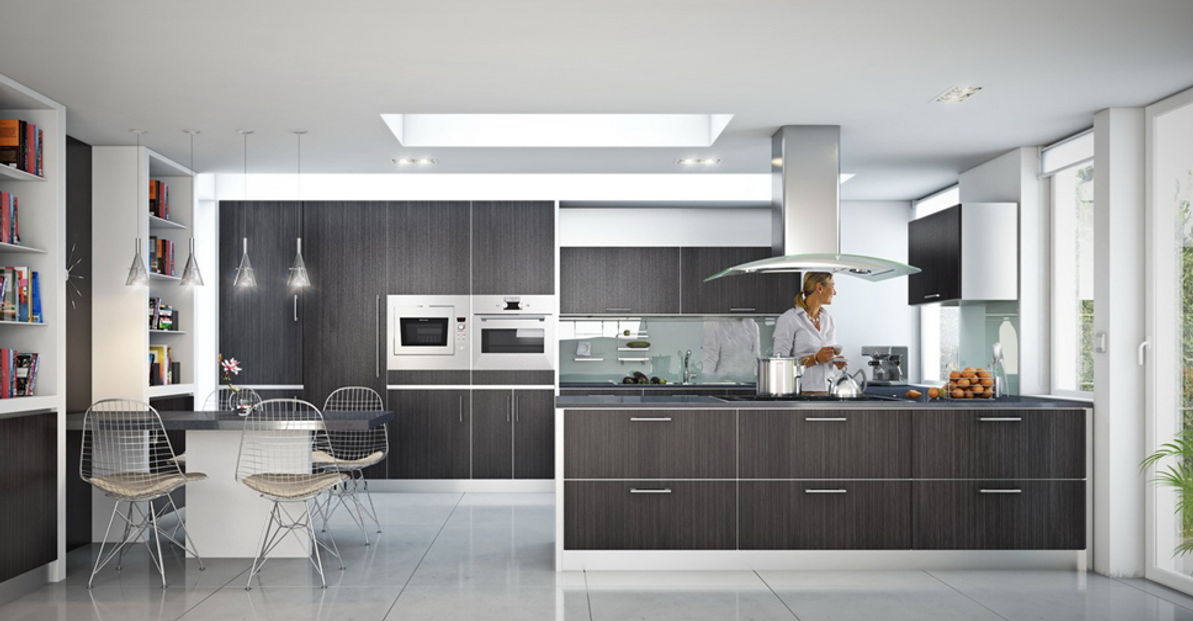Five things to consider before building a commercial home kitchen
If you like to cook (or like to eat), it seems like a great idea to put commercial equipment in your house. However...
Image courtesy of James JoelThe other day when I went to a new dentist I was asked the same two questions I always get asked. First, "what do you do?" I explained I'm in online restaurant equipment sales. The follow up question is always the same: "Can you help me build a commercial kitchen in my house?" As much as I want to continue the small talk, my answer is usually "no."
If you like to cook (or like to eat), it seems like a great idea to put commercial equipment in your house. However, I've found that this is not necessarily the case. Here are the top five things to consider before building your home's commercial kitchen.
1. Commercial does not mean better
It's easy to think that the two are synonymous - commercial units have to hold up under constant usage, they'll be heavy duty, and there's more power than my residential appliances. True. But you also have to give up some things - there will be more noise, more power consumption, and greater heat output. Often times there are less features on commercial equipment. Ranges, for example, will not have as much insulation (thus will be hot to the touch); this is especially important to consider if you have kids running around near your 350,000 BTU range. Also, they do not have pull-out oven racks that allow you to check on Aunt Linda’s famous sweet potato casserole. Instead of only thinking about what you're gaining, also consider what kind of things you're giving up.
2. Read the warranty fine print
If you install most commercial equipment in a residential setting, it will automatically void the warranty. Even if your commercial freezer is dead on arrival, you will be responsible for all the costs associated with getting it up and running. Some companies, such as Manitowoc Ice, will limit the residential warranty. However, finding a local service company may prove difficult since many are only insured for commercial repairs. Call around to make sure someone will be able to work on equipment in your house before you need service. No one expects to have problems with new equipment, but you want to consider what will happen if you do.
3. Check the building codes and your insurance
Commercial equipment has a lot more regulations than its residential counterpart. Often to be up to code you will need flame retardant floors, walls, and ceilings. For some equipment you need a beefed up HVAC system and fire suppression system. It's also worth giving your homeowners insurance a call to make sure that none of your equipment violates your current policy. Because of the safety hazards, most hot-side equipment manufacturers will not even ship to a residence. Make sure your ducks are in a row when it comes to the legal side of things before building out your kitchen.
4. Consider the aesthetics
As a general rule of thumb, commercial equipment is built for function, not form. So when you buy Atlantic Metalworks, for example, expect to see exposed welds and surface scratches, not a polished shine like on your residential stainless. Styles and colors will change without notice, so be careful if you're planning based on the pictures or specification sheets. Also, be sure to measure the depths of your counters, cabinets, etc because the standardized measurements will not necessarily line up with commercial equipment.
5. Research business practices
When you’re used to Amazon's quick shipping or Bed Bath and Beyond's return policy, the natural assumption is that commercial sales work the same way as consumer sales. With most equipment, this is not the case. Upon delivery, for example, we assume that you have a loading dock or forklift available - since your house probably does not, you'll need to purchase Lift Gate delivery and have a dolly or pallet jack available to get the equipment inside. Also, plan ahead because a lot of equipment is custom built, which can mean 8 week lead times. Finally, look into the return policy to see what can and cannot be returned and how warranty repairs work (repair, replacement, refund, etc).
Hopefully you consider these things before purchasing equipment for your residential kitchen. Maybe you knew this and it’s exactly what you want; maybe you need to reconsider your plans. Either way, feel free to contact us with any questions you have. And if you have put our equipment in your home, let me know how it worked out. That way I have more small talk for my next dentist appointment.



